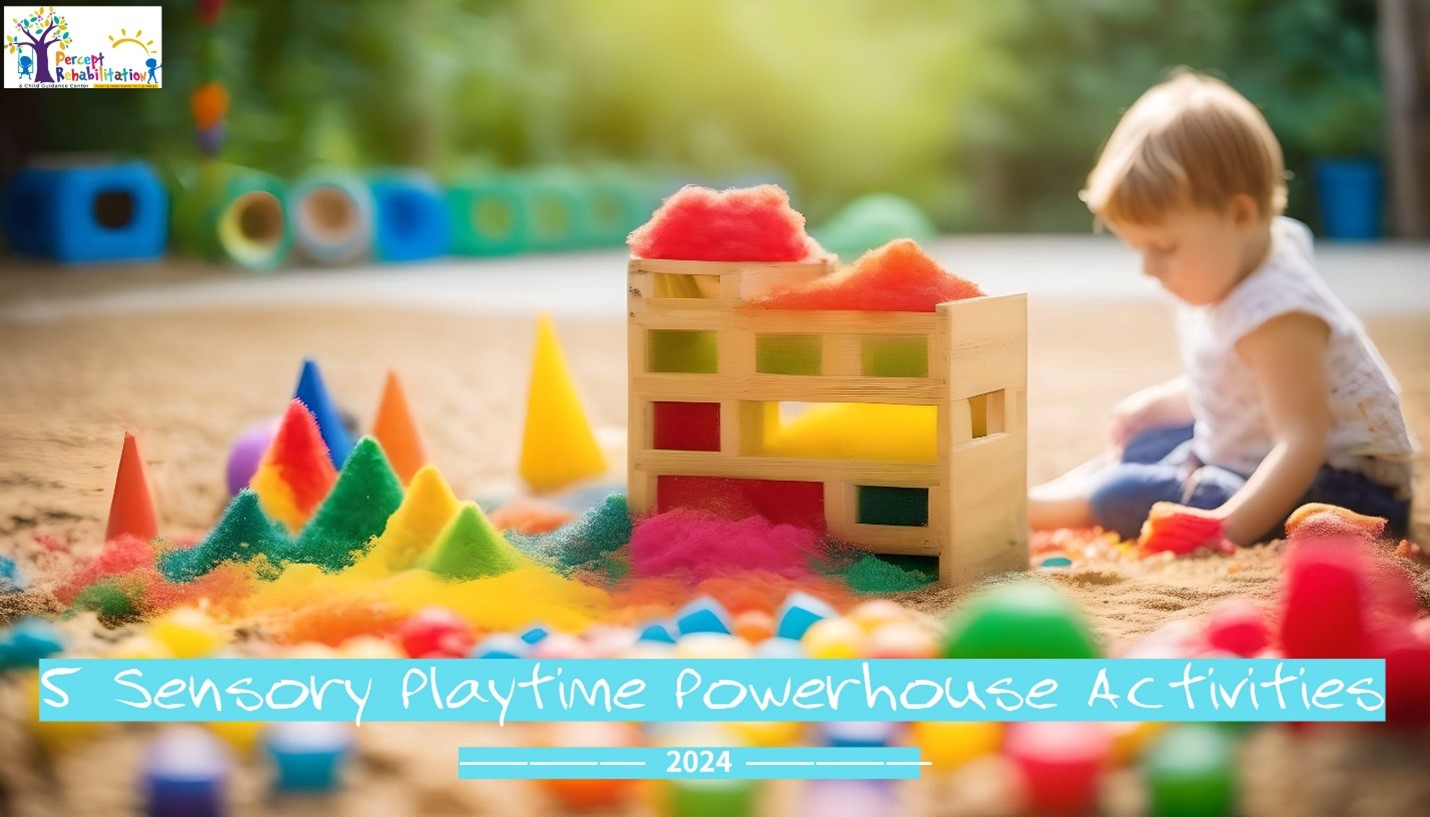Families often arrive at an occupational therapy center in Indirapuram seeking support when a child’s development doesn’t follow expected milestones. The importance of early intervention lies in its power to influence the trajectory of a child’s cognitive, physical, emotional, and social development during the most adaptable stages of brain growth. These critical years are not just about catching up but about building stronger foundations that last for life.
The Science Behind Early Intervention
The brain undergoes rapid development in the first five years of life. During this period, neural connections form at an unprecedented rate, allowing children to acquire skills related to communication, motor coordination, sensory processing, behavior, and emotional regulation. Intervening early during this critical window increases the likelihood of rewiring brain patterns in response to support.
By introducing structured therapeutic input during these years, the chances of long-term developmental challenges decrease significantly. Early neural plasticity ensures that new habits, behaviors, and coping mechanisms become part of the child’s natural development cycle.
Identifying Developmental Red Flags Early
Many parents may miss early signs of developmental delays because the differences can be subtle. While every child follows a unique path, some indicators require professional attention:
- Delayed motor milestones (sitting, crawling, walking)
- Lack of response to sound or visual stimuli
- Avoidance of eye contact or social engagement
- Difficulty using hands or legs symmetrically
- Limited verbal expression or absence of babbling
- Repetitive behavior or sensory-seeking actions
When these signs are recognized and addressed with professional support, progress becomes achievable.
Emotional Impact on the Child and Family
Developmental delays can affect a child’s self-esteem and emotional well-being if not addressed early. Challenges with basic tasks, peer interaction, or school performance can lead to anxiety or frustration. Families, too, face emotional strain—from confusion and fear to guilt or helplessness.
Early therapeutic support alleviates emotional pressures by providing structure, knowledge, and improvement. With active involvement, families witness not only developmental gains but also emotional resilience in their children.
Role of Occupational Therapy in Early Years
Occupational therapy focuses on enabling children to participate in daily activities they might find challenging due to delays or impairments. At an occupational therapy center in Indirapuram, a personalized plan often begins with a detailed assessment, followed by hands-on interventions. These may address fine and gross motor skills, attention span, self-care tasks, and sensory processing issues.
The therapy environment is typically play-based, helping children develop through meaningful activities. This makes interventions feel like games rather than clinical tasks, increasing cooperation and engagement.
Key Benefits of Early Intervention
Some of the most transformative outcomes of early support include:
1. Improved Skill Acquisition: When therapy is started early, children pick up foundational life skills faster and more naturally.
2. Enhanced Social Integration: Timely intervention enables better peer interaction, school participation, and community involvement.
3. Minimized Need for Future Support: Children who receive intervention early often require fewer specialized services later in life.
4. Stronger Parent-Child Relationships: Therapy often includes caregiver training, equipping parents to support growth at home.
5. Reduced Behavioral Challenges: Addressing sensory or developmental issues can reduce frustration and prevent behavioral issues.
Early Intervention for Different Age Groups
- Infants (0–12 Months): Focus is often on achieving physical milestones such as head control, rolling, and grasping. Intervention here is primarily about establishing sensory awareness and basic motor skills.
- Toddlers (1–3 Years): This age group benefits from interventions focused on communication, mobility, feeding, and early social behavior. Delays in language or play behavior can often be reshaped at this stage.
- Preschoolers (3–5 Years): Preschool years highlight school-readiness skills like attention span, self-care, emotional regulation, and classroom behavior. Occupational therapy at this point can bridge gaps between home, therapy, and educational settings.
Addressing Common Myths About Early Intervention
“They’ll grow out of it.”
Not always. Waiting can cause missed opportunities. Early delays often persist or evolve into more complex challenges without support.
“My child is just shy or lazy.”
Behavior that seems like shyness or reluctance can stem from underlying developmental struggles. Professional insight can differentiate between temperament and need.
“Therapy is only for severe cases.”
Even mild delays benefit from support. The earlier they’re addressed, the easier they are to overcome.
Parent Involvement: A Critical Component
Parental involvement can amplify the effectiveness of intervention. When families participate in sessions, implement home strategies, and maintain consistency, outcomes improve dramatically.
What can parents do?
- Attend therapy sessions actively.
- Integrate recommended activities into daily routines.
- Keep communication open with therapists
- Monitor progress and share concerns
Collaboration with Other Specialists
Effective intervention often requires a team approach. An occupational therapist may collaborate with:
- Speech-language pathologists
- Pediatricians
- Special educators
- Physiotherapists
- Psychologists
This interdisciplinary model ensures the child’s needs are met across all developmental domains..
Common Areas of Focus in Early Occupational Therapy
Here are key developmental areas commonly targeted:
- Sensory Processing: Helping the child regulate reactions to sounds, textures, movements, and light.
- Gross Motor Skills: Improving balance, walking, running, jumping, and coordination.
- Fine Motor Skills: Building hand strength and dexterity for tasks like writing, buttoning, and feeding.
- Self-Care: Promoting independence in dressing, grooming, toileting, and feeding.
- Cognitive Engagement: Developing attention span, memory, task sequencing, and early learning skills.
- Social and Emotional Skills: Encouraging appropriate play, emotional regulation, turn-taking, and resilience.
What Makes Early Therapy Sessions Effective?
Effective sessions combine structure, repetition, engagement, and caregiver input. They are designed around play, movement, and reward-based learning.
- Short sessions matched to the child’s attention span
- Activities based on real-life scenarios
- Frequent assessment and goal adjustment
- Positive reinforcement and praise
- Parental coaching and follow-up plans
When to Seek Support
Even without a formal diagnosis, some indicators may call for a professional opinion:
- Your child avoids eye contact or social play
- Speech is minimal by 18 months
- Difficulty grasping toys or manipulating objects
- Trouble sitting still or following instructions
- Sensory reactions like covering ears or avoiding touch
- Frequent meltdowns beyond typical toddler behavior
Early consultation can determine if intervention is necessary or if simple strategies at home will suffice.
The Long-Term Impact of Early Support
Children who receive early intervention often outperform peers with similar challenges who begin therapy later. The benefits extend beyond academic performance to emotional intelligence, resilience, social bonding, and even career success in adulthood.
Families also gain. Reduced stress, better planning, and empowered parenting stem from knowing they acted during the right window. It’s not about fixing a child—it’s about opening more doors for growth and development.



